A note from 2020 Chloe: This blog was written in 2016. Much of the information is still relevant and accurate, but the focus is from a time when transitions in the U.S. government put increased scrutiny on Obamacare. Our health care legislation is still under threat but many elements are recognized as widely popular: It’s a great step in the direction of lowering health care costs, extending health care to more people, and helping more patients with pre-existing conditions. Due to the popularity of this article, I will be publishing an updated version soon!
“America has the best health care system in the world.” -many American politicians, both before and after Obamacare was ever law
[If you want to get a picture (satirical, of course) of the American health care system, check out this funny video from the Daily Show in 2014, even after Obamacare came into effect. Click CC for English subtitles. It shows how you could be deceived into believing the US is a “3rd world country,” considering low-income people in rural areas also benefit from emergency non-profit health care provider Remote Area Medical’s services.]
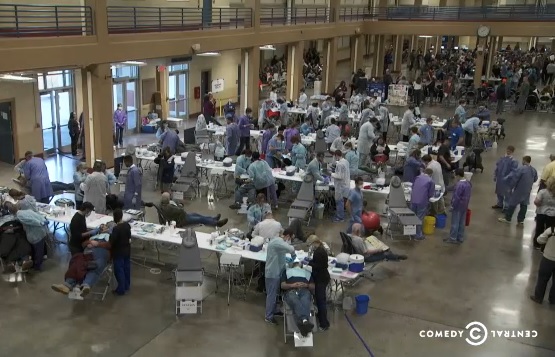
This is not just something American politicians believe. Many Americans will tell you, for better or for worse, they wouldn’t get their health care anywhere else. That they don’t trust anyone, and that for all that – to paraphrase Americans I know – “socialist universal health care crap” they talk in Canada, they still have to wait on long lines in the meantime. And this is a talking point which persists even outside of the US. Many people come there for health care because they trust the large number and education of our specialists, and because words and talking points repeated over and over are powerful.
When people ask me my opinion about CZ, one of my favorite things to discuss is health care – a universal problem with no single universal solution.
Americans are afraid of social systems because they erroneously equate the words “social” or “social democracy” with straight-up Socialism. And as I have written before, this is a no-good-very-bad-word in the US.
However, I now have experience with both the (private) American and (universal, socialized) Czech systems. So how do they compare? I would absolutely love to hear an expert opinion if anyone out there has one, but as I am only a health care hobbyist, I will give my anecdotal experience.
*
Going to the Doctor in Czech Republic
The first time I went to the doctor in CZ, it was to get a mandatory slip that stated I was in good enough health to work here. And I was shocked by the waiting room system. Keep in mind that I live in a small town, and that in cities like Brno and Prague, the system is certainly more modern. But in this small town-doctor’s office, you don’t make appointments. You come (as early in the morning as you can), take a number on a key ring off a board with hooks numbering up to about 30, and you can either stay to wait or come back later (if someone beat you to it and you have a higher number). You are called to see the doctor in the order of the numbers you’ve taken.
Also read: Tales from a Small-Town Doctor’s Office in Czech Republic

(I should also mention that the other doctor on the other side of this smaller waiting room has a more modern system where you press a button and get a ticket with a number on it.) And every time I get between numbers 2-5 (I’ve never gotten 1), I’m like…
If this wasn’t surprising enough, there is no secretary or nurse in the waiting room. This person is on the other side of a door which can only be buzzed open from the inside. So if you urgently need to speak to her, you have to knock and wait in an awkward little group outside the door until she has time for you.
Why is this strange? In the US, every waiting room has a little desk or window for the secretary. We call ahead to make appointments for doctor visits and these appointments are taken very seriously. The secretary should be the friendly face and PR person of the office – if we wait more than 10-15 minutes for our appointment, we need someone to complain to.
However, I’ve gotten used to the waiting and it’s really not as bad as it sounds. If you come sharp in the morning hours, you usually don’t wait longer than 30-45 minutes. Bring a book.
One more note about secretaries
In small town doctor’s offices, there are usually a grand total of two people in the doctor’s office – the doctor (doktor or doktorka 😉 ) and the nurse. This usually means the secretary is usually also the nurse. Yep, she takes your blood and she knows everything about you.
In American offices, secretary is often, but not always, a separate job from nurse.
Small Town Hospitals
I’m lucky to live in a town that has a hospital, and what’s more, to live a three-minute walk from it. When I go to the doctor to get blood drawn, but for example I have missed the once-a-day pickup from the doctor’s office (which takes place no later than 8am and usually earlier), I can walk my own blood sample to the hospital. Depending on where you’re from, this may not sound weird to you, but it will definitely sound weird – and perhaps even unacceptable – to Americans (and my own mother HI MOM).

Learned something new reading about health care in the Czech Republic? Consider donating to support more expat-driven content.
Paying for Health Care in Czech Republic
Here’s the crucial part.
In CZ, health insurance is a universal right – another legacy of Communism. An employee, employer, and the government all work together to ensure the employee gets health insurance. So health insurance is not literally free – I put money towards my plan through my monthly wages.
In the US, most employers with 50+ employees offer subsidized, employer-run group plans, while workers contribute to the cost through premiums, co-payments and deductibles… lots of health care terms Europeans don’t have to care about. Self-employed people in both countries are responsible for buying their own health insurance.
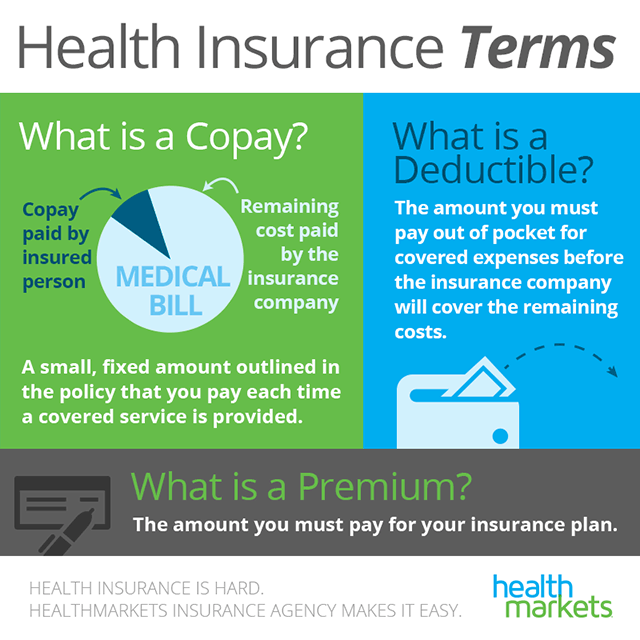
My American experience:
Under Obamacare, I am eligible to be on my parents’ insurance until the day I turn 27. Health care costs are shared between us the insurance company. This means that when I go to my primary care physician, I have to pay a “co-pay,” which under my plan is $50. So if I want a yearly check-up, or if I need to get blood drawn regularly for my medical issues, I pay $50 every time I see my doctor, and slightly more ($60) when I get a recommendation to see a specialist.
My Czech experience (Czexperience):
Czech patients used to pay 30 CZK ($1.30) per doctor visit, a requirement put in place to discourage them from abusing their ability to see their doctor whenever they wanted. This was highly unpopular, and public pressure caused politicians to eliminate this rule, so… when I go to the doctor, I pay nothing. Insurance covers all my visits.

This is true elsewhere in Europe as well, especially former Soviet satellite states. A quick story – last summer I was in Romania with my boyfriend. I developed a painful, burning rash on the back of my neck which, after one day, I realized was not actually sunburn. We were lucky to be in Brasov, where pharmacists spoke excellent English, and one very generous one (to whom I will be forever thankful) called a local dermatologist to make me an appointment. The dermatologist – who, funny detail, spoke every language except English, it seemed, and needed the help of another patient in the waiting room to communicate with us – determined it was an insect bite and prescribed antibiotics and creams without expecting payment. *Huge sigh of relief.*
A couple of crucial differences between American and European systems:
The Supreme Court has debated, and Americans continue to debate, the legality of an employer having a say (based on religious freedom) in what health insurance can cover, and this has mainly focused on birth control and abortion coverage, leading many to conclude that politicians and employers want to legislate women’s bodies.
Meanwhile in many European countries, including Czechia but excluding, for example, Roman Catholic Poland, birth control and abortion are basically non-issues.

Coverage choice: If you get health insurance through your job in the US, you often must accept the plan your employer offers. If you need coverage for extra services, you pay more money for health care “riders.” Health care costs in the US are usually extra expenses. On the other hand, health insurance plans in CZ are chosen individually by the employee and all costs are simply funneled through taxes on monthly wages, which the employer takes care of. Plan options are more similar to each other than in the US and cover a wide range of things, and most or all of what is now being called EHBs (Essential Health Benefits) in the US; for example, pregnancy and childbirth, mental health care, prescription drugs.
The Czech health care system guarantees rather long-term PAID sick and parental leave (and every European state does too, to varying lengths). The American health care system allows for only short-term UNPAID sick and parental leave. (More below.)
Pharmacies and Medication
In the US, generic drugs can be bought cheaply, but many companies take advantage of the system and charge very high prices, depending on what the drug is for and its market availability. I remember paying about $20-25 for antibiotics when I was younger, and this varies wildly. In CZ, I’ve had my fair share of throat issues and have never paid more than $4 for 10 days of antibiotics.

However, it’s also true that more things are available in the US over-the-counter (you don’t need prescriptions for them), and most things you need in CZ, you’ll have to talk with the pharmacist before getting your hands on them.
Emergency Care in CZ vs. the US
Here’s one very interesting and highly-publicized example about how one American family went to the emergency room and were billed $629 for a Band-aid (plaster).
“He tells us that Colette is okay, that the reason it’s bleeding so much is because there are so many capillaries at the end of the finger,” Bird said. “Then he literally runs the finger under the tap, dries it, puts a Band-Aid on it, and says that’s it. We’re very relieved, we go back to the car, and the Band-Aid falls off. But it was fine because it had stopped bleeding.”
Everything about the visit, he says, seemed fine — the doctor, the nurse, all of them were reassuring and provided appropriate care.
Then the $629 charge arrived. To Bird, this seems nuts — in his view, the hospital wanted him to pay $629 for a Band-Aid. Even though his insurance had negotiated the price down to $440, he was still incensed by that initial number.
This was John Murphy, who is the chief executive of the Western Connecticut Health Network, which owns the hospital where Colette was seen. He wrote back to share “a different perspective” on the emergency bill.
First, he points out that the Band-Aid didn’t cost $629; it was actually just $7. The other $622 was the cost of seeing the doctor and using the emergency department itself.
[…] “The remainder of the charge,” he writes, “was associated with the use of the facility and staff. We staff the emergency department 24-hours a day, every day of the year, and stand ready to treat whoever walks through our door, be it a gunshot victim or a patient with a stroke.”
I can see both sides of the issue here. A similar thing happened to me when I was younger, when my family had to pay about $600 for an unexpected visit to the emergency room for me when all I received was a painkiller. However, Murphy has a point – it’s the doctors’ job to be there around the clock. We can debate it til we’re all blue in the face.
Not just a figure of speech.
How does the Czech system subsidize these costs, can anyone tell me?
All I know is that here in Tišnov, when I go to the emergency “pohotovost” services, I pay 80-90 czk ($3.5-4). On the spot.
What’s the Quality of Czech Health Care?
You may be asking yourself – if you pay so little for health insurance, how can you be sure of the quality?
Again, this is only my anecdotal experience. I can say there have been one or two experiences where I didn’t feel the Czech doctor was as attentive or open to my questions and concerns as an American doctor would be, but mostly, doctors are friendly and willing to listen to you. However, they are also firm about what they believe.
All of that said, I personally have not noticed a significant difference in the health care I’ve received. (Then again, I have not needed any serious attention like surgeries in CZ.)

Myths: bulldozed.
Meanwhile, I could spend hours talking with you about…
Sick Leave in Czech Republic
In CZ, when you’re ill for more than a few days, doctors will give you “neschopenka” papers (literally “not approved”) that allows you to stay home. And especially when you are on antibiotics, everyone wants you to stay home at least a week. (There are three papers with three different colors which are to be given to three different entities, but how confusing that is, is a different story.)
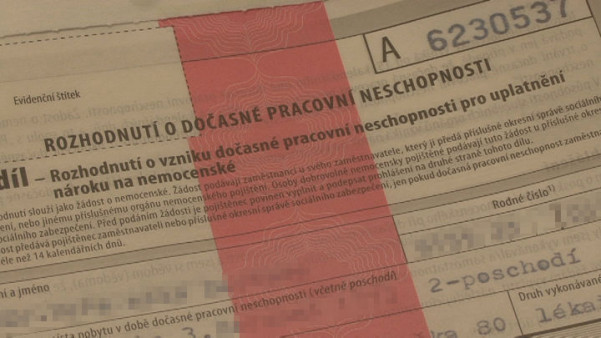
On the other hand, Americans do not generally have paid sick leave and are taking a pay cut if they stay home. That means they are antsy to get back to work and often return before they are truly better.
In CZ, current law states that after staying home for three days, you start to receive 60% of your salary. In the US, it’s so far only a good employer that pays.
Parental Leave in Czech Republic
In CZ, mothers can take up to THREE YEARS of maternity leave per child, with her job guaranteed upon return. Fathers can choose to take the leave instead of the mother. As of this summer 2017, the parent staying home receives 70% of their salary (Czech-only link) and can choose to receive more money per month and stay home for a shorter time, or receive less money and stay home longer.
Here’s a list of European countries with the best parental leave policies. (Czech isn’t on there probably because all things considered, salaries are low for Europe and it’s difficult to take care of babies with the daily/monthly salary options available.)
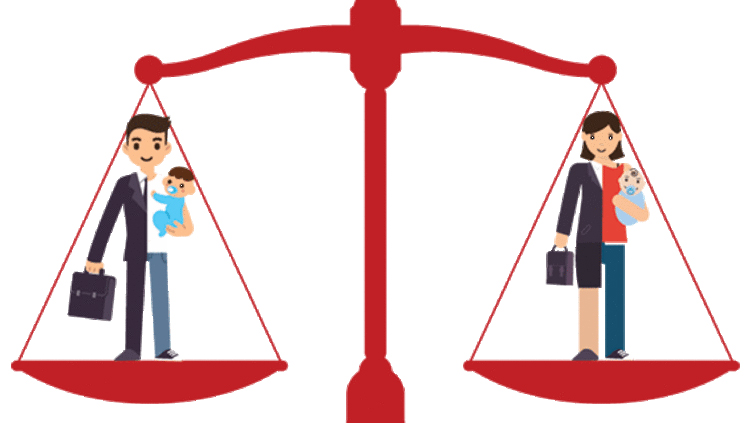
In CZ, parents can also take paid leave from work to go to the doctor with their child or care for a sick child.
On the other hand, the US is one of the worst countries in the world for maternity/parental leave policy. The US does not mandate paid maternity leave. It only guarantees up to 12 weeks of unpaid maternity leave with the same job upon return, under certain conditions. A handful of very progressive companies like Amazon, Netflix, and Google offer paid maternity leave.
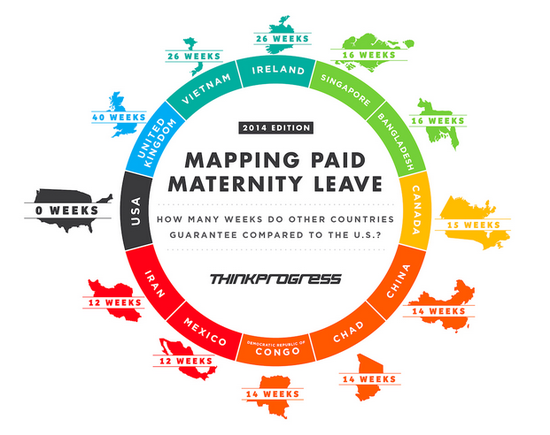
Overall, I really believe that in CZ, doctors and everyone on the street believes that health is the most important thing. We have to take care of ourselves to take care of our society, and employers are very understanding of this. In the US, we may say health is the most important thing, but we are lucky even to have it based on the philosophy of our system.
How is the health care system where you live? Any opinion on the Great American Health Care Debate? What about universal health care?
(Note: This article was written in 2016.) Extra information for consideration:
We can all agree that Obamacare was, at the most basic level, an attempt to extend health insurance to all Americans by creating public health insurance markets that would, in theory, drive down health care costs and make insurance affordable for uninsured Americans. It required Americans to buy health insurance or face a yearly penalty. It also aimed to protect Americans by requiring certain minimums of coverage by insurance companies. The system is imperfect, but it has until now provided millions of Americans with health insurance coverage. The currently proposed Republic health care plan (which is unvetted, unpopular, and vindictive towards Obama-era policies) is estimated to kick 22-24 million Americans off of their health insurance – NOT to make insurance better for Americans.


![How Will 2021 Be Different? [Holiday Recap]](https://chlohemian.com/wp-content/uploads/2021/01/img_9386.jpg?w=723)


[…] am extremely thankful that the European health care system makes it easy for people to access tests at a low cost (even if you pay […]
LikeLike
[…] also make quality low-cost education and health care, but that’s a story for another […]
LikeLike
[…] that’s because we’re naturally on different levels—if you’re used to paying $50 minimum for a doctor’s visit, it’s amazing to pay nothing. And if you’re used to paying nothing, it’s a hrůza […]
LikeLike
[…] In the U.S. we are frustrated with our country, but as flawed as our systems are, there are people who try to do the right thing, to look out for those who are most vulnerable. There were times I considered whether I could continue, and I asked myself, Is it worth it or safe for me? […]
LikeLike
[…] Czech Health Care is a Shock to My System – in a Good Way […]
LikeLike
[…] in connection with health care, has been discussed here, and as for (1): It’s not a secret that American life, particularly in cities and suburbs, is […]
LikeLike
Hi Chloe,
I just came across your blog post, and I find it quite interesting. I am a Czech girl currently living in the USA, so I am comparing things from a slightly different perspective myself. 🙂 And honestly, I really do miss health care at home.
From my quite brief (2 years, luckily without any medical problems) experience, I find the American medical staff a little bit more attentive and sociable, but that might also be just the difference in national mentality. People do not dwell in small talk that much in Czech republic, haha. But even though it may be less fancy, you will get an equally good medical care standard (and sometimes much higher than US standards – e.g., gynecologist visits) in Czech Republic and most other EU countries. 🙂 Also, I completely agree with you that American insurance policy terms are SOOO confusing. I still don’t have a quite clear idea of how much I would need to pay for things if I got really sick…
Also, I have a few comments for you. I am not sure about Tišnov, as I have never lived in that town, but I would say that in general there are doctors everywhere in Czech republic who are making appointments. Not all of them, but you can definitely find them quite easily, which will help you avoid the long waiting times. Of course, there may be some patients with an urgent problem that would get to see the doctor immediately but usually with an appointment the waiting time is no longer than 15 min anytime during the day (my personal experience with several doctors). Some younger doctors even accept appointment reservations through email or online system now, and sometimes you could even get a prescription for a drug electronically without going to doctor’s office in person (assuming it is something you use over a long period of time without issues). So quite a jump from key chain numbers (at least for some doctors). 🙂
Regarding the medicines, there are lots of them sold over the counter actually. The major difference, I would say, is that you cannot buy them in a grocery store. But anyone can buy these drugs in pharmacies, and as a bonus, you always have a knowledgeable pharmacist there to advise you, if you are not completely sure which pills in which dosing to take – not something that Walmart personnel can offer (in the grocery store part). 🙂
And lastly, I am not sure if it is fair to compare prices directly between the US and the Czech Republic. The USA prices are ridiculously high in health care, that’s for sure, but wages in the Czech Republic are incomparably lower so looking simply at the cost difference is not quite possible this way.
I really like your post! It is great to hear a foreigner’s perspective to something that I take as a norm myself. 🙂 I hope you will have some more good time in the Czech Republic without any need to visit doctors!
Kristýna
LikeLike
Hey there, thanks for your comment! I’m gonna reply as soon as I can 😉
LikeLike
“Obama’s intention was good.”
His good intention relied, no, depended on, “the stupidity of the American Voter;” and, when trying to sell the ACA he stated, “we will keep this promise to the American people: if you like your doctor, you will be able to keep your doctor, period. If you like your health care plan, you’ll be able to keep your health care plan, period.” That statement, issued more than 30 times by then-President Obama was voted, “Lie of the Year” by PolitiFact. Do 30+ lies make a right?
“Checks and Balances.”
Former Senator Harry Reid threw shade at checks and balances with his procedural changes in order to push through a massive social-policy change. I reiterate that the current discussions underway are exactly what should have taken place before ACA was signed into law.
“Widening the Wealth Gap.”
From the Gini Index, 2016. “The distribution of income in the United States has been more unequal under Obama’s presidency than any time since the 1930s.”
Parsing the numbers (available through census.gov), with the exception of 2009, the share of the richest 20% (the “upper echelon”) throughout the Obama administration was higher than any year under his Republican predecessor. The bottom 60% had a lower share in every year Obama was president.
This all being said, there is a lot of disparate anger in your last comment; I, like one of the above commenters, find discussing these topics interesting, but the creeping sense of ad hominem attacks suggests it is time for me to leave this conversation.
I wish you all the best.
LikeLike
I find it so interesting to learn more about health care systems in different countries! From the outside, the German and Norwegian one (the only countries where I’ve lived so far) seem rather similar but actually they’re not. In Germany for example, you have to pay a monthly fee for healthcare whereas in Norway, you don’t have any expenses until you actually go to the doctor’s. So in Germany you basically pay in advance whereas in Norway you pay per visit. Visiting the dentist is quite expensive in Norway though as it’s not part of the government scheme, whereas it’s included in your coverage in Germany… The Czech system seems rather similar to the German one though in that there are secretaries who’re also nurses. The drawing a number system though, can only be found in Norway.
LikeLike
and when you go to the doctor in Norway, how/how much do you pay? Dental care is so expensive everywhere… in CZ I think only basic things are covered; you have to pay extra for yearly cleanings, for example.
LikeLike
I am fascinated by topics like this. As a matter of fact, I learned a lot talking to residents of Czechia, Hungary and Poland when I visited last year.
The waiting system on a clinic is very similar to what you will find in Puerto Rico (I grew up there) and other Latin American countries. You take your number and wait to receive care. In my perspective, that system benefits you when you need that care the same day. I get so frustrated with the appointment system here in the United States. Sometimes, I feel so bad and I am told the next available appointment is in 5 (or more) days. On those cases, I go to an urgent care facility.
The parental / maternal rights are so good there!
Thanks for all your insights! #WanderfulWednesday
LikeLike
thanks for commenting, Ruth! it’s an interesting perspective on the waiting system…. I never thought about it like that.
LikeLike
Obama promised that (the Administration), “will not sign any non-emergency bill without giving the American public an opportunity to review and comment on the White House website for five days.”
While the ACA had been in process for a year, the specifics of the bill that eventually became ACA were rushed. The Senate Finance Committee’s consideration of ACA was marked up after midnight as the staff whipped up a package of manager’s amendments meant to ensure that the law worked as planned. Then Senate Majority Leader Reid introduced a reconciliation order to make hundreds of changes throughout the proposed bill, text barely released before the floor debate. The Senate version of ACA, of nearly 17,000 pages was passed on Christmas Eve when no one was watching.
The actual legislators who voted on the legislation didn’t know how the law would work, but they trusted the experts they hired. One of those experts was Jonathan Gruber, whose reliance on “the stupidity of the American voter” made it important for him and Democrats to hide Obamacare’s true costs from the public. “That was really, really critical for the thing to pass.”
As for “Unpopular,” I submit:
2010 CNN Opinion Poll 59% Oppose Obamacare
2011 Kaiser Family Foundation and Harvard School of Public Health. In its most recent tracking poll, it found that 50 percent of respondents had an unfavorable view of the law.
2013, 2014 Gallup. “38% approved after companies dropped millions of Americans from their insurance plans because the plans did not meet the law’s minimum coverage requirements.” Relying on the stupidity of the American voter, Obama promised, “If you like your plan, you can keep your plan.”
2015 Gallup (Following Supreme Court ruling) Americans’ approval of the law rose to 47%.
2016 Kaiser Poll. The November survey, conducted after the 2016 election, showed 45% find “Obamacare” unfavorable.
Really, it comes down to semantics. Volleying legislation around for a year in order to hide the true costs of its unpopularity from the “stupidity of the American voter” in a Christmas Eve vote, and then rushing it into law in the absence of the promised, “opportunity to review and comment on the White House website for five days,” sounds to me like the definition of having something forced down one’s throat.
Exit Question. How much would an “Obamacare” policy cost you? Could you afford it? Would you purchase it?
LikeLike
vkvienna, I was 17 at the time these things were happening and I did not follow politics as closely as now. The most important question for me at the moment in terms of “shoving things down peoples’ throats” is, Do two wrongs make a right? Politics are ruthless, and Obama’s intention was good. You can choose to believe differently, but for the majority of the country that despises the Republicans’ repeal and replace bill, it’s not an attempt to improve healthcare, it’s a party without checks and balances widening the wealth gap without any real concern for people who are not part of the uppermost echelons of society.
LikeLike
I appreciate that you, as an American blogger, want to boast about the health care system in your adopted country relative to what you perceive will happen in America. But there is so much missing from your comparisons.
Among the missing considerations, the Czech Republic has a population approximately equal to that of Ohio. Scaling anything up 30x will always be wrought with difficulty. America’s Founders kind of had that in mind when they successfully argued for states to rule themselves.
We live and work in Austria; thankfully our move happened well after we had children and needed day care. If I had been expecting our first child in Austria, I would have been unceremoniously kicked out of the workforce at 7 months expectant and not allowed back in for 6 months, because the government “knows” what’s best, right? In America, thankfully, I was able to choose when I went on leave; within a couple of weeks after our child was born I was popping back into the lab periodically to finalize some experiments, experiments that ultimately led to three of the patents I hold. Here in Austria? I would be paid 23% less than my male counterparts for the “privilege” of “free” maternity leave, whether I wanted it or not. I agree that America needs comprehensive, quality maternity leave, but it should not be entirely free. Because nothing is ever truly “free.”
I also agree that the current system in the U.S., “Obamacare” is imperfect, but it is important to distinguish between the persons who have insurance on paper, but can not afford that insurance in reality.
Of the estimated 47M uninsured in the U.S. prior to implementation of ACA, roughly 20M people signed up. 40% of those (8M) can not afford their plan, meaning that they are one major medical event away from financial catastrophe. Should these 8M people be counted as “having” insurance? There remain 22M uninsured. 57% (15M) choose to remain uninsured because of the high costs.
Another way to look at the numbers is thus: 20M people “gained” insurance under ACA via too-expensive plans or penalties, but 23M still have no viable insurance.
It is disingenuous to dismiss any current Healthcare plan being proposed. The debate and discussion over the merits of any plan currently underway is exactly the healthy dialogue that should have occurred before, “We have to pass this bill so that you can find out what’s in it” was signed into law.
Thank you for reading.
LikeLike
Hi vkvienna, thanks for reading. A few points:
1) I feel the tone of this comment is a bit unfair. You have some differing opinions, and your (good) points can be made without accusing me of boasting- the point of this article is mostly to compare through anecdotes, with the exception of the end. I didn’t say that we should adopt the system; I don’t pretend to understand the policy-making scale of health care. Again, it’s an average hobbyist’s anecdotal comparison.
2) I appreciate your perspective having lived in Austria. I didn’t know that.
3) as to your last point, I respectfully disagree- I can understand how people feel Obamacare was forced down their throats, esp considering the current state of affairs, but keep in mind Obamacare was in process for at least a year. The current proposed bill has been negotiated in secret- it’s not an open debate as far as Congressional Republicans are concerned- and it has been a mere couple months they have been trying to pass it. To me, that is the definition of having something forced down your throat, something that is so important to so many people.
LikeLike